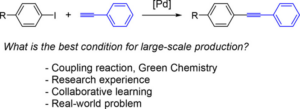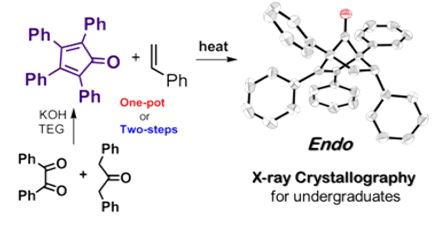HOANG Truong Giang
Senior Lecturer
Ph.D., University of Minnesota, Twin Cities, USA, 2012; B.Sc. Hons. (First Class), National University of Singapore, 2004.
Contact Information:
Office: S5-05-06
Tel: (65)-6601-7393
Fax: (65)-6779-1691
Email: chmhoan@nus.edu.sg
Research
Recognition and Achievements
- Faculty Teaching Excellence Awards 2015, 2021, 2023
- Assistant Head, Chair of the Department Outreach Committee and Co-chair of the Department Teaching Excellence Committee (2021 – 2024)
- Coordinator of the NUS Chemistry Internship Programme (2019-2021)
- Mentor of the Singapore International Chemistry Olympiad Team (2013, 2019, 2020 and 2021)
Education and Research Interests
My research group aims to enhance university-level chemistry education. By focusing on organic and medicinal chemistry, we integrate green chemistry principles and modern technologies to create new experiments that are both educational and environmentally sustainable. Through these platforms, we strive to equip the next generation of chemists with essential skills and knowledge, inspiring them to succeed and care for the environment.
Education Highlight
We transform traditional experiments into problem-based learning platforms for advanced undergraduate students. For instance, in our modern approach to the Sonogashira coupling experiment, students are given a target compound that can be synthesized in a single step. Working collaboratively in groups, they explore and determine the most effective method for large-scale production. This practical scenario helps students conduct literature searches, select suitable procedures, practice their synthesis skills, and evaluate their results in a real-world context.

We have designed new experiments based on the Diels–Alder reaction involving 2,3,4,5-tetraphenylcyclopentadienone, synthesized either beforehand or in a one-pot reaction with styrene. Through these experiments, students are introduced to two significant and atom-economical reactions, enhancing their understanding of sustainable chemistry practices. They also learn to interpret 1H NMR spectra using the Karplus relationship and utilize X-ray crystallography for structure determination. By presenting three potential products—the endo and exo diastereomers, and the decarbonylated product—students develop critical thinking and problem-solving skills as they analyze and evaluate their results.
Teaching Contributions AY2024/2025
- CM2122 Organic Chemistry
- CM3121 Advanced Organic Chemistry
- CM3191 Chemical Synthesis Experiments
- CM5102 Chemistry in Society (Course Coordinator)
- CM5103 Industry Seminar (Course Coordinator)
- CM5274 Organic Synthesis: Theory and Practice
Representative Publications
- Ong, W. Y. E.; Tan, Y. Z. D.; Lim, L. J.; Hoang, T. G.; Tan, Z.-K., Crosslinkable Ligands for High-Density Photo-Patterning of Perovskite Nanocrystals. Adv. Mater. 2024, 2409564.
- Ong J. Y; Chang S. C.; Hoang T. G., Empowering Students to Design and Evaluate Synthesis Procedures: a Sonogashira Coupling Project for Advanced Teaching Lab. Chem. Educ. 2018, 95, 1078–1081.
- Serratore N. A.; Anderson C. B.; Frost G. B.; Hoang T. G.; Underwood S. J.; Gemmel P. M.; Hardy M. A.; Douglas C. J., Integrating Metal-Catalyzed C–H and C–O Functionalization To Achieve Sterically Controlled Regioselectivity in Arene Acylation. J. Am. Chem. Soc. 2018, 140, 10025-10033.
- Hoang T. G.; Walsh D. J.; McGarry K. A.; Anderson C. B.; Douglas C. J., Development and Mechanistic Study of Quinoline-Directed Acyl C–O Bond Activation and Alkene Oxyacylation Reactions. J. Org. Chem., 2017, 82, 2972–2983.
- Hoang, G. T.; Kubo, T.; Young, V. G.; Kautzky, J. A.; Wissinger, J. E. Illustrating the Utility of X-ray Crystallography for Structure Elucidation through a Tandem Aldol Condensation/Diels-Alder Reaction Sequence. J. Chem. Educ. 2015, 92, 1381-1384.
- Hoang, G. T.; Pan, Z. D.; Brethorst, J. T.; Douglas, C. J. Intramolecular Oxyacylation of Alkenes Using a Hydroxyl Directing Group. J. Org. Chem. 2014, 79, 11383-11394.
- Hoang, G. A. T.; Reddy, V. J.; Nguyen, H. H. K.; Douglas, C. J. Insertion of an Alkene into an Ester: Intramolecular Oxyacylation Reaction of Alkenes through Acyl C-O Bond Activation. Angew. Chem. Int. Ed. 2011, 50, 1882-1884. [Selected by the Editorial Board as a “Hot Paper”].

